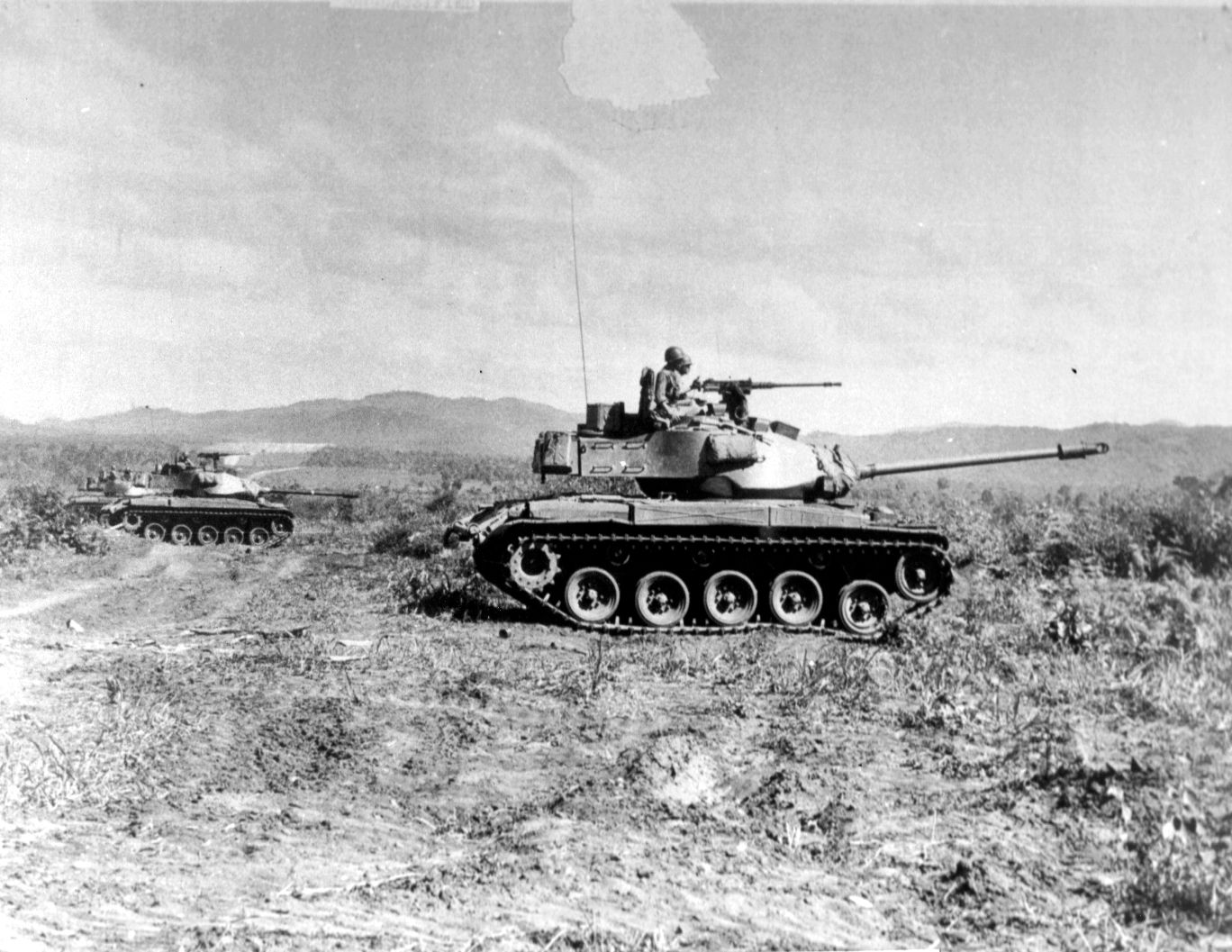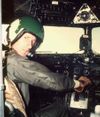The mission that never was
Excerpt from: The Girl Who Ran with black Tigers©… Chapter four, October 1973. These are only short passages from the book I wrote relating to our time in Vietnam.

Excerpt from: The Girl Who Ran with black Tigers©
These are only short passages from the book I wrote relating to our time in Vietnam.
His right elbow leaning on the open window, DeWitt let the warm air flow over his arm. He should have been feeling relieved but somehow he also felt disappointed, as if he had been cheated out of something important. Deep inside he knew if they had managed to penetrate that hill, it would probably have proved sinister and maybe deadly.
‘Strange thing this war business, isn’t it?’
‘What you mean?’ Le Chan asked a bit distracted.
‘Well, if they send us out somewhere, we find all sorts of reasons to bitch… then if they tell us to piss off because the mission is scrapped, we bitch as well…’
Le Chan chuckled. ‘It’s the adrenalin… you expect something to happen, then it doesn’t. You deflate like a soufflé in your mother’s oven… makes you feel like you missed the show. You don’t know if you should feel happy or be pissed off… I’m happy.’
They fell silent. After a while, with the monotonous drone of the engine, and in the oppressive Delta heat, Le Chan nodded off. Forsberg had taken up position in the cargo bay with his back propped up against the rucksacks. He liked it that way; he could keep an eye on traffic behind him in case of trouble. Sergeant Van Nihn was lying down across both rear seats in the hope of catching some sleep.
DeWitt drove through the small town of Thôt Nôt, which consisted of no more than a row of houses on either side of the road. It was a town like any other along the Mekong River; there were probably hundreds just like it, scattered all over the Delta. Just another insignificant little town stuck between the river to the north, with fields and trees on the south side; they all looked the same to him. He gave the place no more than a fleeting glance. It appeared deserted. There was no sign either of the usual women working along the road, shaking out large baskets separating the rice from the stalks. Not even a curious face peeped out of a door or a window.
Very quiet around here, he thought, maybe too quiet.
As he came to the end of the row of brick houses, he drove the heavy Land Rover onto a bridge spanning over a waterway. For a brief moment he had a vision of the army truck lying on its side among the debris of the destroyed bridge back in Chau Doc province near the Cambodian border.
Instinctively he accelerated slightly. But no explosion came, nothing happened.
Of course not, he thought. It was a silly thought. Why would something happen out here?
When the vehicle had crossed the waterway, the road made an abrupt and sharp turn to the right.
DeWitt was about to a step on the accelerator again when he saw it, dark and threatening. There, right in front of him, stood the bulking hull of an M-41 Walker Bulldog Tank. The South Vietnamese tank had taken up position along the right side, blocking half the road. The turret was turned perpendicularly towards the south, and at that precise moment, its canon roared as it fired a round across a field into the tree line. Le Chan, who had been dozing with his chin on his chest, woke up with a start. ‘Putin de merde! What was that?’
‘Tanks!’ DeWitt said as he braked hard. Sergeant Van Nihn swore as he slid off the rear seats he had been resting on when the vehicle came to an abrupt halt.
Beyond the first tank, there were two more tanks parked at 100 metres intervals. Dozens of soldiers were huddling behind and around each of them. An M-113 armoured personnel carrier belched diesel fumes as it left the road, turning directly towards the fields. It then slowly moved down the shallow embankment and entered the dried out rice paddy. DeWitt put the Land Rover into reverse, screeching back over the bridge he had just crossed.
All doors on the four-wheel drive vehicle flew open as it came to a skidding halt again just in front of the last house. The four men scrambled out of the vehicle, grabbing helmets and weapons. They all struggled inelegantly into their webbing and belts, which contained ammunition pouches and canteens. Then they quickly slipped into their protective flak jackets. Forsberg, ever alert, knelt down beside the vehicle. He turned his M-14 rifle towards the row of houses, covering the rear and keeping a watchful eye on any space between them that could easily hide a surprise.
‘OK let’s go have a look,’ DeWitt said. ‘We’ll cross the bridge in pairs either side.’
‘Well, I’m not that curious,’ Van Nihn answered with a smile on his face that clearly meant to convey the opposite. DeWitt started for the bridge with Le Chan on his heels. The two other men followed five metres behind keeping to the left. On the other side of the waterway, they came across a small grubby boy who apparently found all the excitement rather interesting. Obviously, he didn’t see tanks very often in his neighbourhood and the fireworks were much more interesting than his daily chores at home. Just before reaching the first tank, the four men looked up at the sky when they heard the shriek of an enemy mortar shell on its way back down to earth.
Van Ninh shouted at the kid to jump down into the embankment.
‘He’s long,’ Le Chan commented looking at the sky, thinking he might get a glimpse of the object. The mortar was badly aimed as it overshot the road. It unceremoniously crashed into the opposite riverbank, spewing up black smoke, water and mud.
Le Chan peered into the ditch along the road, grabbed the little boy by the arm and pulled him up. He then hurried back along the bridge towing the child along by the hand. Halfway down the bridge he stopped and bent over the little boy like an angry parent scolding a naughty child.
‘Now get out of here, go home and stay indoors… it’s dangerous out here, it’s not a game, you understand?’
As the boy reached the other side of the bridge, a woman came running along the road. She grabbed the little boy by the arm and ran back along the line of houses, her baggy black trousers flapping around her legs.
When Le Chan again crossed the bridge he noticed a body lying on the embankment alongside the canal. The dead person was too far away for him to see if he was a Viet Cong or a local farmer.
The officer in charge of the platoon of tanks hung half way out of the turret. Leaning on his elbows, he scrutinised the tree line through his binoculars. He looked to his left, and as he spoke into his microphone, he waved the infantry soldiers on. Soldiers, hiding behind tanks and vehicles, struggled to their feet. At first they slowly moved forward as they deployed into the field. Then the platoons quickly spread out, keeping an adequate distance between each man. Many young soldiers unsheathed and fixed their bayonets onto their rifles. Sergeant Le Chan walked to the side of the first tank.
‘What’s going on out there, sir? Le Chan inquired. The Vietnamese officer peered down from his turret through his gold rimmed Ray Bans and was surprised to see a Ranger looking up at him. He recognised the camouflage pattern: the helmet with the large frontal emblem of the black tiger’s head on a white star.
‘Not very much so far. There’s some VC out there in broad daylight, big mistake; if they don’t surrender we’ll put them through the meat shredder,’ the officer laughed grimly. He then held his hand up, indicating that he was listening to someone talking into his headset.
He suddenly took on a serious look again and, appearing very much like a World War Two Japanese officer, he shouted some orders into his microphone. The turret moved a few degrees to the right and up. Then, the cannon fired in a deafening blast of both fire and smoke. The high explosive shell crashed into a second tree line out of view of the road.
‘Shit, I wish he would warn us when he's going to do that.’ DeWitt swore, ‘My fucking ears!’
The officer on top of his tank turned sideways again. Looking down, he bellowed at Le Chan, ‘What are those Americans advisers doing here, sergeant?’
‘They are not Americans sir, and they are not advisers. They are properly registered Vietnamese Rangers… like us… sir.’
The officer observed the sergeant with some puzzlement, but probably thought better of it than to ask any more questions. ‘If you Rangers want to participate in a bit of shooting, you are welcome… The boys out there will like it if they see your helmets among them. It’ll boost their morale.’
‘Thank you sir, we’ll go have a look,’ the sergeant answered. He turned round and saw DeWitt raising his eyes to the sky. Le Chan shrugged his shoulders. ‘What?’
‘We’re gonna hold their hands now for a bit of shooting? It’s not our business,’ DeWitt said. ‘Shoot at what? Shoot at tree leaves? If I shoot at something, I’ll have to clean my rifle, and that will really piss me off.’
Instead he went in search of a cigar in his breast pocket as he reluctantly followed the soldiers into the rice paddy. It would have set a bad example if they wouldn’t join the regular Vietnamese troopers in the field.
The soldiers ahead of them were already spread throughout the partly dried up rice paddy. They were advancing towards the tree line. The soldiers appeared reasonably well trained as they covered each other, kneeling every 30 metres, while other squad formations moved forward. So far it looked more like a military exercise than war.
DeWitt watched the tree lines, anticipating all hell would break loose at any moment. ‘I sure as hell hope they will charge if someone starts shooting at them.’
‘The commies will have scampered by then,’ Van Nihn said. ‘They’re not going to face tanks and infantry during daylight hours, that would be pretty unusual. Nothing to gain.’
‘Unless they’re trapped,’ Forsberg said.
Or they have a superior force…DeWitt thought.
A flash appeared out of the trees. A rocket propelled grenade hissed by in a flash, trailing white smoke as it flew towards the armoured personnel carrier…
